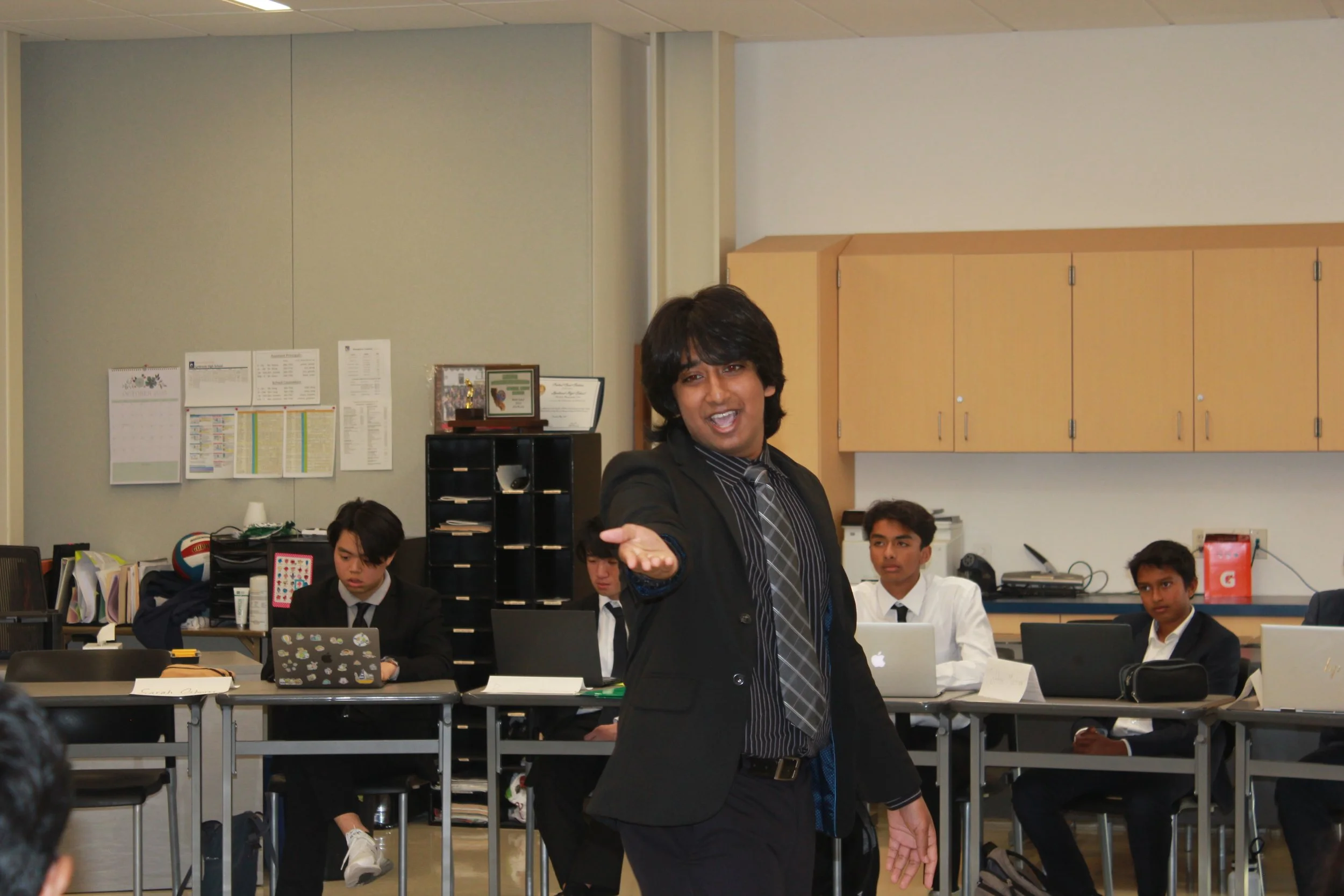
Crisis
Crisis committees are fast-moving committees that aim to imitate boards and organizations. Delegates represent a character as opposed to a country, and the committee usually addresses short-term issues such as wars, disasters, or revolutions with swift measures. This allows delegates to use their individual powers to take actions outside of the committee with the goal being to fulfill their personal interests and assert their character’s viewpoint accumulating the most social, political, or economic power at the end of the conference.
The two forums of crisis committee:
In-room
includes the performance of the delegates inside the committee such as speeches, collaboration, and directive writing. This functions as a General Assembly committee with the chair calling for motions and delegates moving between unmoderated and moderated caucuses.
Out-room
Maneuvers are what make the crisis committee special. Delegates can create their own storylines, known as crisis arcs, which should be developed before committee. Crisis arcs contain directives that a delegate plans to write which are mapped out to build on the previous one to achieve a final goal. In addition to developing a crisis arc, delegates are also busy establishing connections with other characters to take advantage of loopholes and gain power.
A Guideline for Crisis Arcs:
-
First commitee session
In the first committee session, delegates should aim to establish a foundation for events they wish to propagate later on in the conference. The first notes should be to gather resources and spread propaganda to reach other delegates whose connections might come in handy later.
-
Next committee sessions
In the next few committee sessions, delegates’ crises should be moving towards a climax, something that piques interest but not as dramatic as the climax
-
Last committee session
In the last few committee sessions, the carefully architectured directives should build to carry out the climax of the crisis arc. The climax is the most impactful and compelling element of the arc, being the final push to attain the delegates’ goals.
How to Prepare:
Crisis Tips
-
Stay in character
This can be a great way to encourage debate and get recognition.
-
Be flexible
Topics change quickly so you must adapt your approach to them.
-
Be ready to speak
Due to the small size of crisis committees, delegates have a lot of opportunities to speak.
-
Be focused
Each committee has its own focus and goals, so try to remember the committee’s purpose and not stray afar.
For first-time crisis delegates, this can be a daunting experience but hopefully, these guidelines can help streamline your first crisis committee. Most importantly, remember to have fun!




